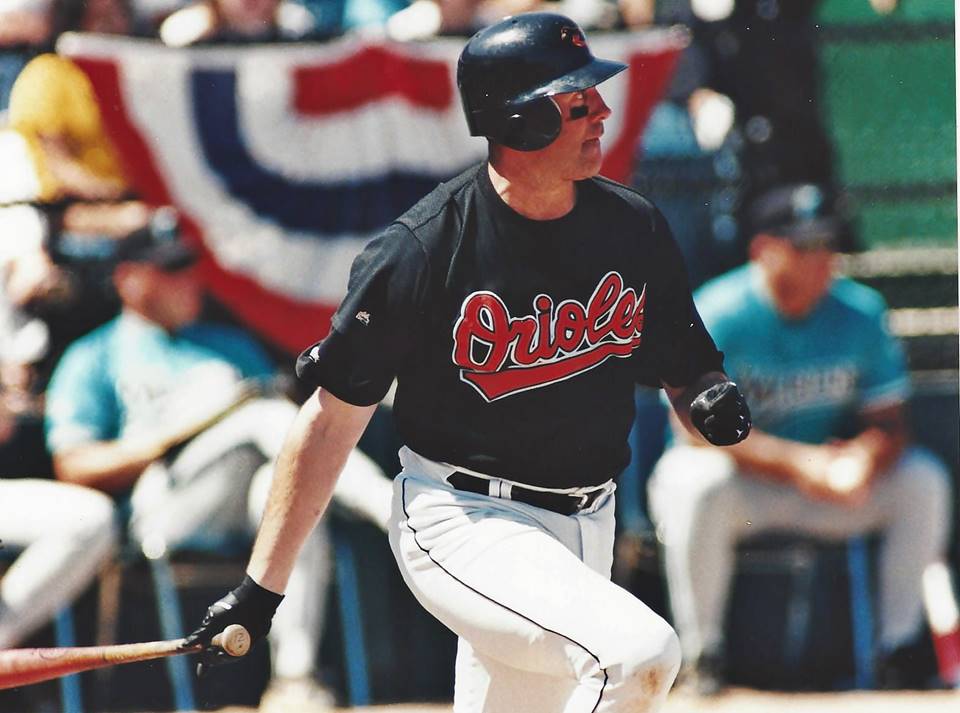Will Clark: Oh, What a Thrill! (Part 8)

Part 8: Winding Down a Brilliant Career
This is the eighth in a series of articles that detail the career of New Orleanian Will “The Thrill” Clark. Watch for additional weekly posts about Clark’s career on the Crescent City Sports website. Click here for the full series.
Following three injury-plagued years with Texas, Clark rejuvenated his career with the Rangers in his last year with them. However, wanting to go in a different direction at first base after the 1998 season, the Texas Rangers replaced Clark with Rafael Palmeiro. The Baltimore Orioles signed Clark to bring much-needed intensity, as well as his bat, to their lineup. However, he was unable to avoid injuries again, which limited his effectiveness. He provided his last thrills as a major leaguer during a two-month stint with the St. Louis Cardinals in their run to the 2000 playoffs.
The Orioles intended to build a team over the winter of 1998 that could compete with the New York Yankees. They added Will Clark, slugger Albert Belle, Gold-Glove catcher Charles Johnson, and .290-hitter Delino DeShields to a roster that already had established veterans Cal Ripken Jr., Harold Baines, and B. J. Surhoff. However, the first day of the 1999 season would be the only one in which the O’s would have a better-than-.500 record for the entire season.
In the 12th game of the season, Clark suffered a broken thumb. He had been one of the few bright spots for the Orioles even though they were off to a rocky start. He missed 31 games before returning on May 25.
Then his season ended prematurely on August 13 because of an elbow injury. Thus he appeared in only 77 games that year, which was the lowest of his career.
Like most of the seasons when he incurred injuries, Clark’s numbers were respectable when he was in the lineup. His slash line for the entire season was .303/.395/.482, while he had 10 HR and 29 RBI in 294 at-bats. However, his results were a major disappointment to the Orioles who had been seeking to replace Palmeiro’s 43 HR and 121 RBI from the year before. Down in Texas, Palmeiro had the best season of his career with 47 HR, 148 RBI, and a .324 batting average.
The 2000 season for the Orioles started out better than 1999, and by the first week of May they still were playing above .500. Clark went on the disabled list with a strained left hamstring on May 2 and missed 14 games. By the end of July, the Orioles had dropped back of first place by 12 games. Clark was mostly hitting seventh in the batting order, with a .301 batting average, 9 HR and 28 RBI. Altogether he had missed 22 games to that point.
The Orioles weren’t going anywhere again in the AL East. In fourth place at the July 31 trade deadline, the Orioles were open to considering offers from other teams for Clark. The Cardinals came looking for a replacement for first baseman Mark McGwire who was on the disabled list because of tendinitis in his right knee. Clark was traded with cash to the Cardinals for Jose Leon.
During the last two months of the season for the Cardinals, 36-year-old Clark hit like he did in his early days as a Giant, collecting 12 HR and 42 RBI and posting a .345 batting average and .426 on-base percentage. He batted fourth in the lineup behind the Cardinals’ best player, Jim Edmonds. During a stretch of 51 games while Clark was with the team, the Cardinals were 33-18.
McGwire wound up sitting out 56 games. When he returned to the lineup on September 8, Cardinals manager Tony La Russa was in no hurry to put him back at first base since Clark, McGwire’s teammate on the 1984 Olympic team, was ripping apart the league. Instead, McGwire served as the team’s pinch-hitter for the rest of the regular season.
Except for two games in June, the Cardinals held first place in the NL Central the entire season. Clark’s presence in August and September assured there would be no hiccups going down the stretch, and indeed they finished ten games ahead of the Cincinnati Reds in the final standings.
The Cardinals swept the Atlanta Braves in the Division Series, with Clark hitting a dramatic three-run home run off Tom Glavine in Game 2. They advanced to play the New York Mets in the League Championship Series, but were defeated in five games. Clark led the Cardinals with a .412 average while hitting another home run.
The Sporting News reported the Cardinals were interested in re-signing Clark for 2001 as an insurance policy at first base, but he would have to agree to less money and less playing time behind McGwire who was expected to return as the starter at first base.
However, in early November Clark made an announcement in St. Louis that he was retiring after a 15-year career. He told reporters in St. Louis, “In every player’s career, sooner or later, you’re going to have to make a decision to move on. I can still hit, I can still play, still field my position. But also, at the same time, it’s the right time for me to exit.” He didn’t rule out the possibility of serving the St. Louis organization later in some capacity.
Clark concluded his career with a lifetime .303 average, 284 home runs, and 1,205 RBIs in 1,976 major-league games. He scored 1,186 runs and collected 2,176 hits. His on-base percentage was .384, while his slugging percentage was .497. One wonders what Clark’s career numbers would have been had he not suffered the many injuries and even played a few more seasons.
In any case, Clark had a brilliant career. He was an impactful player on and off the field. He was brash and cocky at times, but there was no else his teammates would rather have than him at the plate with the game on the line. At the peak of his game, he was as good as they came in the major-leagues.
Blues singer-guitarist B.B. King once had a popular hit song, “The Thrill is Gone.” After 15 seasons, Will “The Thrill” had gotten his last hit and retired as a player.
- < PREV Skelton’s late heroics lift LA Tech in 4-2 win over WKU
- NEXT > Ex-Ohio State quarterback J.T. Barrett signs with Saints
Richard Cuicchi
New Orleans baseball historian
Richard Cuicchi, Founder of the Metro New Orleans Area Baseball Player Database and a New Orleans area baseball historian, maintains TheTenthInning.com website. He also authored the book, Family Ties: A Comprehensive Collection of Facts and Trivia About Baseball’s Relatives. He has contributed to numerous SABR-sponsored Bio Project and Games Project books.





